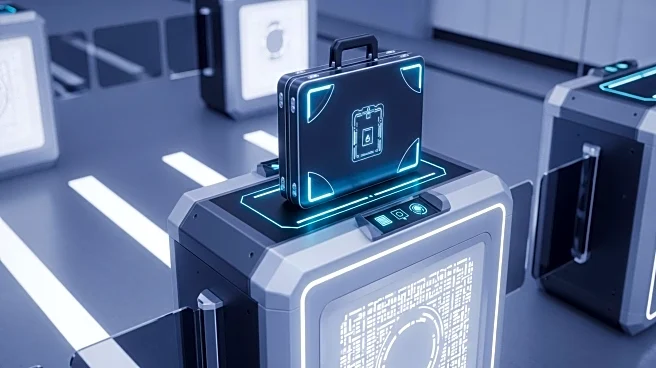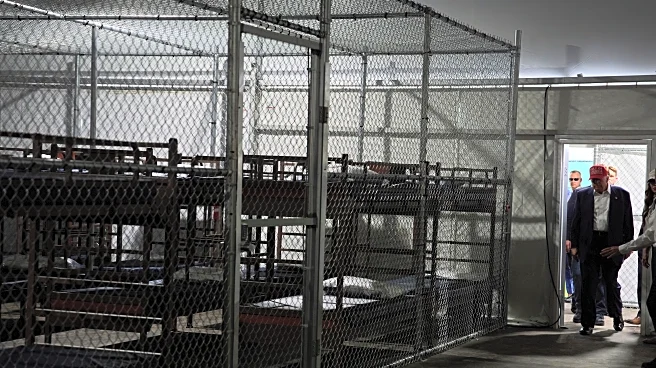What's Happening?
Business travelers venturing into high-risk areas such as parts of the Middle East, Africa, South Asia, and Latin America are advised to equip themselves with essential security gear to mitigate risks associated with political unrest, cybercrime, terrorism, and natural disasters. Key items include personal alarms, safety bracelets, doorstop alarms, portable locks, flashlights, and headlamps. Anti-theft bags, RFID-blocking wallets, and smart luggage locks are recommended to prevent theft. Cybersecurity measures such as strong passwords, multi-factor authentication, and VPN-enabled hotspots are crucial to protect sensitive data. Satellite phones and portable Wi-Fi hotspots are suggested for reliable communication in areas with unstable cellular networks.
Why It's Important?
The significance of this advice lies in the increasing need for business travelers to secure global opportunities while ensuring their safety in volatile regions. Essential security gear not only provides peace of mind but also enhances the ability to conduct business effectively without succumbing to local threats. The emphasis on cybersecurity highlights the growing concern over digital theft, which can compromise sensitive business information. By adopting these measures, travelers can protect themselves and their corporate missions, ensuring continuity in operations and safeguarding personal and company assets.
What's Next?
Business travelers are encouraged to integrate these security measures into their travel plans, ensuring they are well-prepared for potential threats. Companies may consider providing training and resources to employees traveling to high-risk areas, emphasizing the importance of security awareness and preparedness. As global markets continue to expand into volatile regions, the demand for security solutions and intelligence services is likely to grow, prompting businesses to invest in comprehensive travel risk management strategies.
Beyond the Headlines
The advice underscores the ethical responsibility of companies to protect their employees while pursuing international business opportunities. It also highlights the cultural dimension of adapting to local security challenges, requiring travelers to be aware of regional risks and customs. Long-term, this focus on security may lead to innovations in travel gear and technology, enhancing the safety and efficiency of international business travel.










